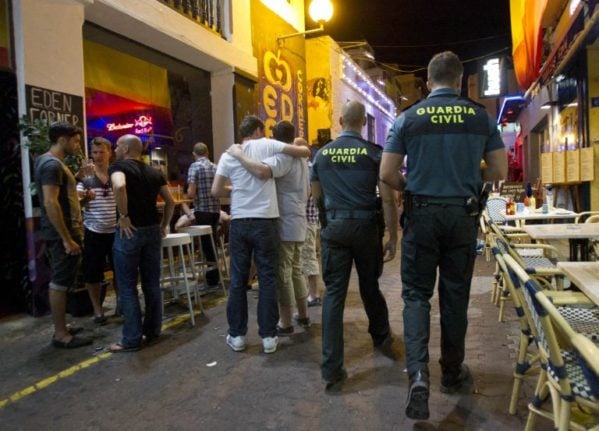The government is working on the assumption that the system will go live on October 6th, ministers told a hearing at the House of Commons European scrutiny committee this week.
But the European Commission is expected to confirm the exact launch date of the new biometric checks for non-EU travellers entering the Schengen area at some point this summer, they added.
“We are very much working on a basis whereby this policy will go live on the 6th of October. It is important that we plan for that eventuality. We are expecting to hear definitively from the European Union that ‘go live’ arrangement in the summer,” Tom Pursglove, UK Minister for Legal Migration and the Border told the committee.
The parliamentary committee is conducting an inquiry on the disruptions the system will cause in the UK.
Pursglove also said that “precautionary measures” have been agreed by the EU, that will be put in place in certain circumstances after the start of EES, for example if delays at the borders exceeded a certain length of time.
Guy Opperman, Under-Secretary of State at the Department for Transport, said that in practice this meant a “soft launch” of EES for 6 months before “a full go live”. During that soft launch EU member states and the UK could deploy flexibility measures should problems occur.
“The likelihood is, after multiple delays, that the 6th of October will proceed” and the implementation looks “very different” compared to previous scenarios considering the flexibility allowed in the first 6 months, he argued.
No details were given on what these “flexible” measures would involve however.
READ ALSO: Your questions answered about Europe’s EES passport checks
He conceded that “a lot of work” still needs to be done but the UK “should be as ready as everybody” and “better be at front of the queue”.
App not ready
During the meeting, it also emerged that a much-anticipated app that would allow remote pre-registration of non-EU citizens subject to the checks will not be available for testing until August “at best”, prompting concerns about the EES launch date.
“You don’t need to be a sceptic about future projects to think that the provision of the app in August for going live in October is optimistic,” Opperman said.
Ministers confirmed that the app will not be ready in time for October and the committee previously stated it might be delayed until summer 2025.
The app will facilitate pre-registration, but photo and fingerprints will still have to be taken at the border in front of a guard, the committee heard.
READ ALSO: How do the EU’s new EES passport checks affect the 90-day rule?
Several MPs asked whether the entry into operation of the EES should be delayed again if technology is not ready. But Under-Secretary Opperman said the app “is not going to be a panacea to fix all problems”.
The main aim of EES is to increase security and to ensure that non-EU nationals visiting the Schengen area for a short-term do not stay more than 90 days in any 180-day period.
The entry into operation of the system has already been delayed several times and there have been calls from certain travel companies and national authorities to delay it again.
Under the new scheme, non-EU/EFTA travellers who do not need a visa will have to register their biometric data (finger prints and facial images) in a database that will also record each time they enter and exit the Schengen area.
Instead of having passports manually stamped, travellers will have to scan them at self-service kiosks before crossing the border. However, fingerprints and a photo will have to be registered in front of a guard at the first crossing and there are concerns the extra time needed will generate long queues, especially in Dover, Folkestone and St. Pancras station in London, where there are juxtaposed French and UK border checks.
Progress in preparations
Minister Pursglove also updated MPs on ongoing preparations. He said some testing of the system will take place within days, 5 kiosks have been installed at St. Pancras station and are available for testing. “You are beginning to see the physical infrastructure appear,” he said.
Kiosks and extra lanes are also being created at the port Dover and it was agreed with the EU passengers travelling by coach will be checked away from the Eastern dock, where controls usually take place, allowing to gain space. The vehicles will then sealed and drive on the ferries.
MPs also discussed the infrastructure cost linked to the introduction of the EES. Opperman said all EU countries will have to make “huge investments” in their ports. In the UK, he argued, this will help “address problems that have existed for some time”. Because of this “massive investment”, in a few years time “Dover will be totally transformed,” he said.
This article is published in cooperation with Europe Street News.



 Please whitelist us to continue reading.
Please whitelist us to continue reading.
Member comments